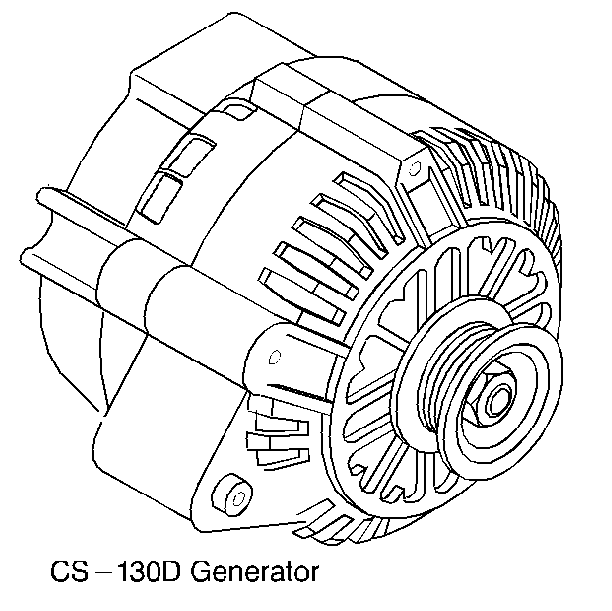The charging system consists of the battery, the generator with a built-in regulator, and the charging system indicator lamp circuitry. The generator supplies electrical power for charging the battery and operating the accessories.
The CS-130D generator features high ampere output per pound of weight. The CS stands for the charging system and 130 is the measurement in millimeters of the outside diameter of the stator laminations.

This generator does not have a diode trio. The delta stator, rectifier bridge, and the rotor with slip rings and brushes are electrically similar to the other CS-series generators. A conventional pulley is used. The dual internal fans cool the slip rings, the end frame, the rectifier bridge and the regulator.
The charge indicator, which appears on the instrument panel as a battery symbol, turns on when the ignition switch is closed and turns off when the engine is running. If the charge indicator is on with the engine running, a charging system problem is indicated. This indicator will glow at full brilliance, not half lit, if any charging problem occurs or if the system voltage is too high or too low.
The regulator voltage setting varies with the temperature and limits the system voltage by controlling the rotor field current. It switches the rotor field current on and off at a fixed rate of about 400 cycles per second. By varying the on-off time, the correct average field current for the proper system voltage control is obtained. At high speeds, the on-time may be 10 percent and the off-time 90 percent. At low speeds, with high electrical loads, the on-off time may be 90 percent and 10 percent respectively.
The regulator has four terminals, P, L, I, and S. The P, I, and S terminals are not used. The L terminal provides an input to the instrument cluster for the charging indicator and the voltmeter.
The generator is serviceable by complete replacement only. No periodic maintenance is required. The generator should not be disassembled for any reason.
